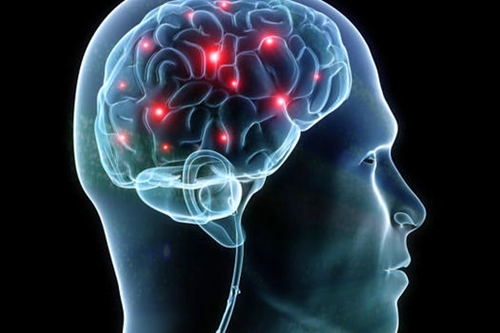7 June 2016. A blood test for two key biomarkers can identify drugs for depression that match an individual’s condition with the disease, thus improving chances of success. A team from the lab of psychological medicine professor Carmine Pariante at Kings College London published its findings yesterday in the International Journal of Neuropsychopharmacology.
Pariante’s team, including colleagues from Italy and Canada, are seeking better tools to guide decisions by physicians in prescribing drugs for depression. The authors cite data showing more than half of patients fail to respond adequately to first-line depression drugs, and one in three patients resist all available treatments. As a result, physicians end up using a trial-and-error approach until a working drug is found, with the patients often suffering the consequences.
The researchers note a number of other efforts also seeking biomarkers — molecular indicators of medical conditions — to guide decisions for drugs to treat depression, but their results are not yet translated into clinical practice. Among the reasons, say the authors, are tests designed for a particular laboratory rather than general use, as well as taking relative rather than absolute measures, which reduce their value in predicting outcomes in individual cases.
The team designed and evaluated a blood test measuring biomarkers indicating inflammation, citing data that show people with depression overall have higher levels of proteins associated with inflammation. In addition, among individuals with depression, those resistant to drugs to treat the disease tend to have even higher concentrations of these indicators.
The test designed by the Kings College researchers measures quantities in blood samples of the proteins macrophage migration inhibitory factor and interleukin 1 beta. Both proteins are associated with inflammation, and in a previous study, the Kings College team show the feasibility of measuring messenger RNA molecules for interleukin 1 beta.
The authors took blood samples from participants in two independent clinical trials in Europe testing depression drugs, Genome-Based Therapeutic Drugs for Depression, or Gendep study, and a trial at IRCCS, a research hospital in Brescia, Italy. In their analysis, they identified absolute threshold levels of messenger RNA for macrophage migration inhibitory factor and interleukin 1 beta indicating if participants are likely to respond to two common drugs for depression: escitalopram and nortriptyline.
The results show individuals with readings on the biomarkers below the threshold respond to the drugs, while 100 percent of participants with readings above the threshold did not respond to the drugs. The researchers attribute the findings to macrophage migration inhibitory factor affecting signaling pathways supporting generation and plasticity of nerve cells, while interleukin 1 beta affects pathways involved with oxidative stress and neurodegeneration.
“This study provides a clinically-suitable approach for personalizing antidepressant therapy,” says Pariante in a university statement. “Patients who have blood inflammation above a certain threshold could be directed toward earlier access to more assertive antidepressant strategies, including the addition of other antidepressants or anti-inflammatory drugs.”
Read more:
- Smartphone App Helps Deal with Negative Moods
- $500K Challenge Seeks Mood Research Ideas with iPhone
- Virtual Reality Seen Helping People with Depression
- Electronic Patch Shown to Help Relieve PTSD, Depression
- Boehringer, Arena to Discover Neurological Drugs
* * *


 RSS - Posts
RSS - Posts
You must be logged in to post a comment.